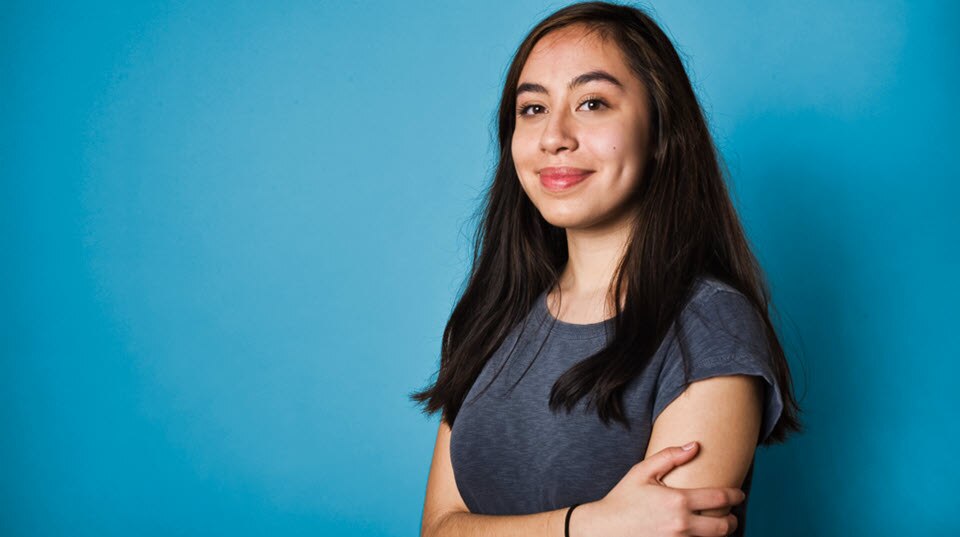Getting our Youth on the Road to Financial Literacy

Dear Reader,
As we once again send our children back to school, my mind immediately turns not to the three R's—but to the challenge we face as a country in educating our kids about money.
I’ve been an advocate for financial literacy for over 20 years, and the longer I'm involved, the more convinced I become of its critical importance. If nothing else, the last year and a half has shown us the need to be financially prepared—whether that’s for unexpected events, to support our evolving goals and priorities, or to create equal opportunities for all, regardless of socioeconomic background.
Unfortunately, though, too many of us had to learn on our own or wait until adulthood—when the stakes were already pretty high—to learn to think critically about our finances. Currently only 21 states require high school students to take a course in personal finance. This is a step in the right direction, but it leaves the vast majority of students, and especially low-income students, out in the cold. As a country we can—and must—do better.
That's why I'm excited to announce the launch of Moneywise America, a groundbreaking financial literacy program that will marshal Schwab employee volunteers to provide high-quality financial education to teens across the country, with a focus on reaching youth in under-resourced communities. This new program builds on the 20 years of successful collaboration between the Charles Schwab Foundation and several of America's leading youth and community organizations, including the Council of Economic Education and Next Gen Personal Finance, providing financial education in communities with the greatest need. With Moneywise America we're reaching out even farther.
Creating opportunity through financial literacy
I’m passionate about financial literacy because it has the power to provide opportunities and change lives. Did you know that kids with savings accounts in their name are six times more likely to attend college? Or that a poor credit report can prevent you from getting an apartment, or even a job? Or that nearly one quarter of Americans have no retirement savings?
These are just some of the issues that motivate me. With households increasingly responsible for their own financial welfare, lessons about saving, budgeting, preparing for the unexpected, developing goals and investing need to be learned early in life. Knowing and understanding how to manage money shouldn’t be a rarified skill or a ‘nice-to-have,’ but rather an essential life skill that helps us all live full and rewarding lives.
We've decided to focus on teens in under-resourced communities so that we can begin to level the economic playing field and close the income and wealth gap. Unfortunately, too many of us learn about handling money by making mistakes. One of the chief goals of Moneywise America is to prevent financial missteps, which can be particularly devastating for individuals from vulnerable groups who also have to bear the financial repercussions of discrimination, underinvestment, and environmental and climate-related risks.
The beginning of a lifelong journey
I view financial literacy as a lifelong quest, a knowledge and skill base that we should begin to build when we’re young, and then continue to expand over time as our needs evolve and we gain experience. The first time you open a 401(k), it can feel like you’re entering a foreign land with obscure terminology and an overwhelming number of choices. Or the first time you buy a house, or even a car, the rigmarole can be overwhelming.
As someone who's been a financial professional for over half of her life, I can honestly say I'm still learning as well—which is why I think of financial literacy as a lifelong journey. Our hope is that programs like Moneywise America will not only teach the fundamentals of money management, but also provide our students with the foundation and confidence they need to continue learning. We want to help them find the path that will lead to the future they choose, a future filled with possibilities.
Let's make financial literacy the norm
In 2020 Schwab fielded a national survey that showed Americans overwhelmingly recognize the importance of financial literacy for themselves as well as their children. The majority of respondents expressed regret they hadn’t learned how to manage money at a younger age.
As a society, we have the ability to move the dial. As we roll out Moneywise America across the country in the coming months and years, we're excited to join forces with parents, teachers, and community leaders in this essential mission of educating and guiding our youth. To a large extent, our future as a more prosperous country—and our children’s futures as capable and fulfilled adults—is in our hands. Please stay tuned in the coming months as we share ways you can work with us in this essential endeavor.
Have a personal finance question? Email us at askcarrie@schwab.com. Carrie cannot respond to questions directly, but your topic may be considered for a future article. For Schwab account questions and general inquiries, contact Schwab.
What You Can Do Next
Explore other Ask Carrie articles on personal finance.
Get more money tips for the whole family at SchwabMoneyWise.com.
 By
By